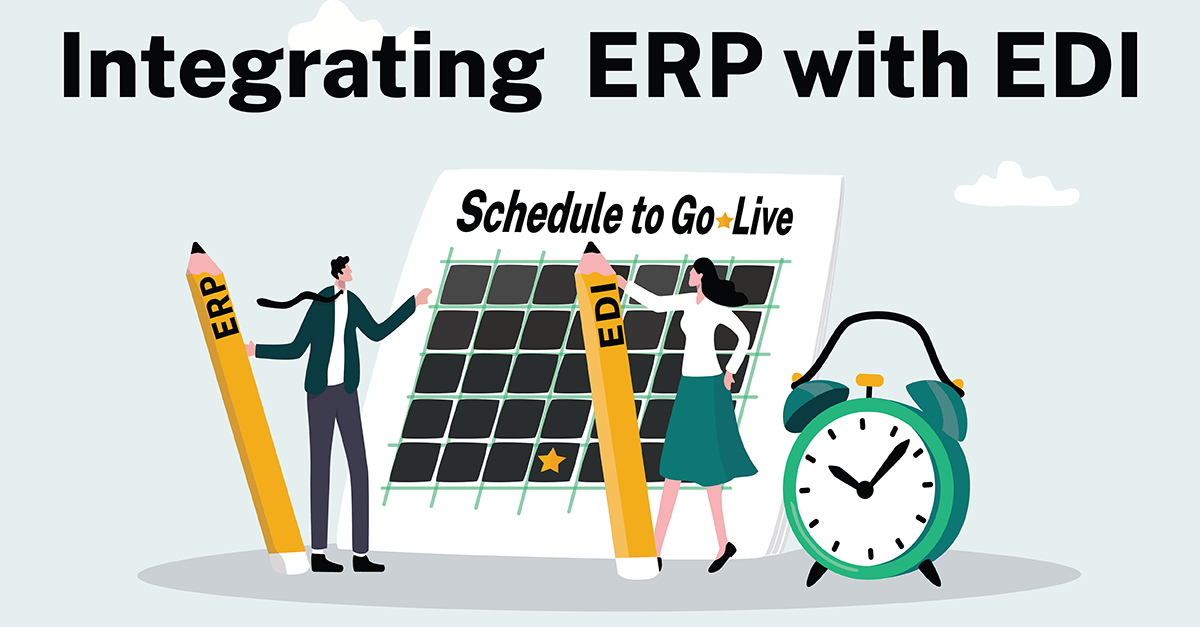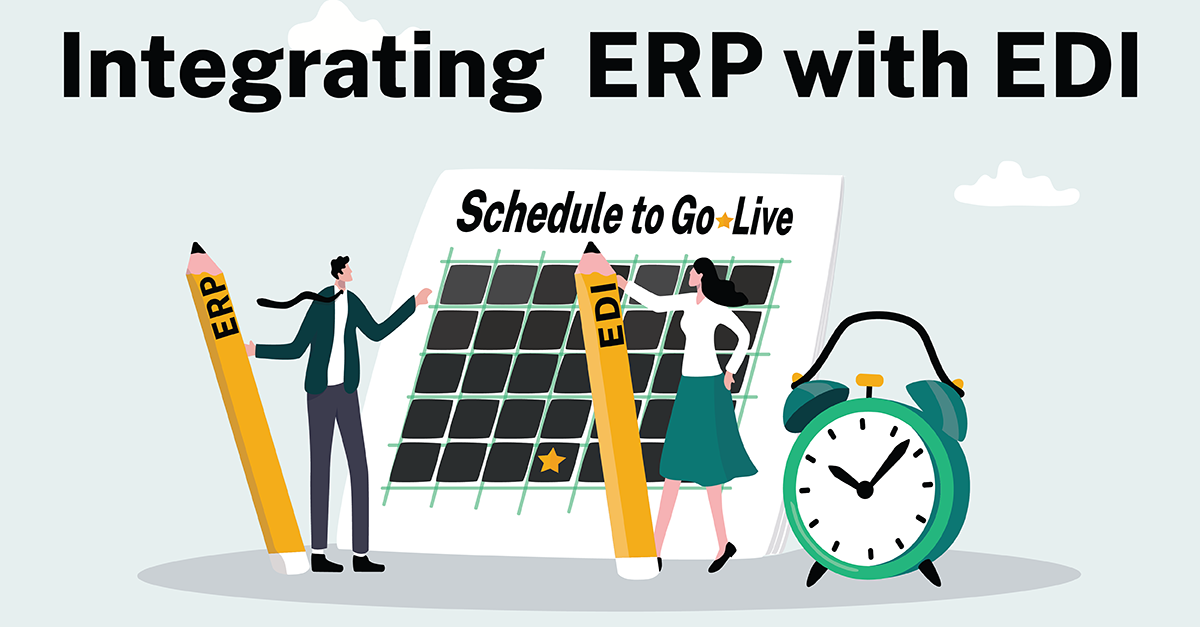5 Tips to know before integrating your ERP with EDI


5 Tips to know before integrating your ERP with EDI
Tip #1 – Ensure you get an EDI provider offering a flexible solution.
We bring unique-to-the-industry flexibility and customization to each EDI ERP integration project. That's a massive benefit to our clients as they get a solution that fits their environment rather than the more common EDI outsourcing model where customers conform to the provider's standards.
As with anything that provides a customized solution, our EDI ERP integrations require planning and combined efforts to achieve the right fit.
Tip #2 – Plan your ERP and EDI at the same time.
When moving forward with a new ERP implementation, it's essential to simultaneously consider the time required for EDI development. Our decades of experience ensure that we understand EDI requirements. However, this often leads to a misconception that past projects translate exactly to new ones and that we can begin coding and figure out the details afterwards.
Tip #3 – Communicate how you need the integration to work.
To begin coding, we need to know precisely how you require your system to work. We need to know the connections required, which retailers, and what documents are being exchanged. How do you do invoices and shipments? If you're working with a cloud-based ERP for the first time, that impacts the integration.
Once customized, your standard ERP application – for example, NetSuite – is no longer the off-the-shelf setup. The result of the customization is that your NetSuite is not the same as that of other companies, so our EDI integration cannot be the same.
In the discovery document we provide to clients after the initial kickoff call, we outline all the information we need to begin the integration. While it takes some time on the client side to pull the information together, the payoff is that the integration moves significantly faster and with minimal reworking.
Our strong recommendation to our clients is to think about EDI integration almost as soon as they begin their new ERP setup. Give yourselves the time to gather all the information we need so that there is no eleventh-hour panic to get to a go-live date mandated by the ERP. This prep work saves us from a situation where we need answers to move forward, and clients are scrambling to get the information resulting in time lost and the potential for increased costs due to reworking elements.
Tip #4 – Integrating ERP with EDI will realize enormous benefits for your company.
Once you've integrated your ERP and EDI systems, the benefits of automation are vast and tangible. You'll increase accuracy, save money and time and have an easily scalable operation without increasing headcount. We want to help you make the process of leading up to those benefits as streamlined as possible.
Tip #5 – If you are looking for an integration solution customized to your environment, contact Integral Group.
If you'd like to know more – about the integration process or doing EDI in general – please contact our Director of Sales, Lee Mrkonjic.
lee@integralgroup.ca
(289) 301-2410
We bring unique-to-the-industry flexibility and customization to each EDI ERP integration project. That's a massive benefit to our clients as they get a solution that fits their environment rather than the more common EDI outsourcing model where customers conform to the provider's standards.
As with anything that provides a customized solution, our EDI ERP integrations require planning and combined efforts to achieve the right fit.
Tip #2 – Plan your ERP and EDI at the same time.
When moving forward with a new ERP implementation, it's essential to simultaneously consider the time required for EDI development. Our decades of experience ensure that we understand EDI requirements. However, this often leads to a misconception that past projects translate exactly to new ones and that we can begin coding and figure out the details afterwards.
Tip #3 – Communicate how you need the integration to work.
To begin coding, we need to know precisely how you require your system to work. We need to know the connections required, which retailers, and what documents are being exchanged. How do you do invoices and shipments? If you're working with a cloud-based ERP for the first time, that impacts the integration.
Once customized, your standard ERP application – for example, NetSuite – is no longer the off-the-shelf setup. The result of the customization is that your NetSuite is not the same as that of other companies, so our EDI integration cannot be the same.
In the discovery document we provide to clients after the initial kickoff call, we outline all the information we need to begin the integration. While it takes some time on the client side to pull the information together, the payoff is that the integration moves significantly faster and with minimal reworking.
Our strong recommendation to our clients is to think about EDI integration almost as soon as they begin their new ERP setup. Give yourselves the time to gather all the information we need so that there is no eleventh-hour panic to get to a go-live date mandated by the ERP. This prep work saves us from a situation where we need answers to move forward, and clients are scrambling to get the information resulting in time lost and the potential for increased costs due to reworking elements.
Tip #4 – Integrating ERP with EDI will realize enormous benefits for your company.
Once you've integrated your ERP and EDI systems, the benefits of automation are vast and tangible. You'll increase accuracy, save money and time and have an easily scalable operation without increasing headcount. We want to help you make the process of leading up to those benefits as streamlined as possible.
Tip #5 – If you are looking for an integration solution customized to your environment, contact Integral Group.
If you'd like to know more – about the integration process or doing EDI in general – please contact our Director of Sales, Lee Mrkonjic.
lee@integralgroup.ca
(289) 301-2410
